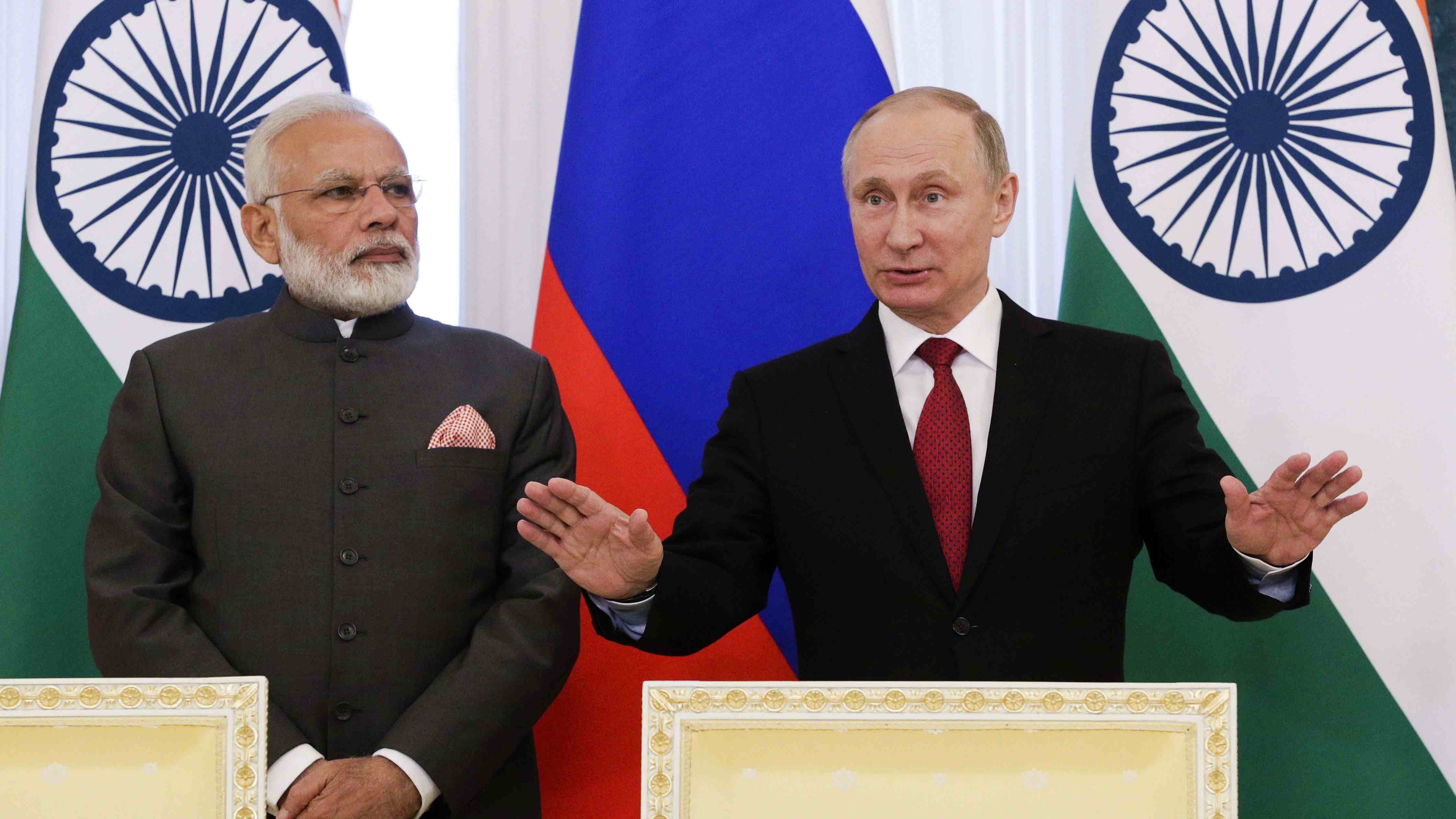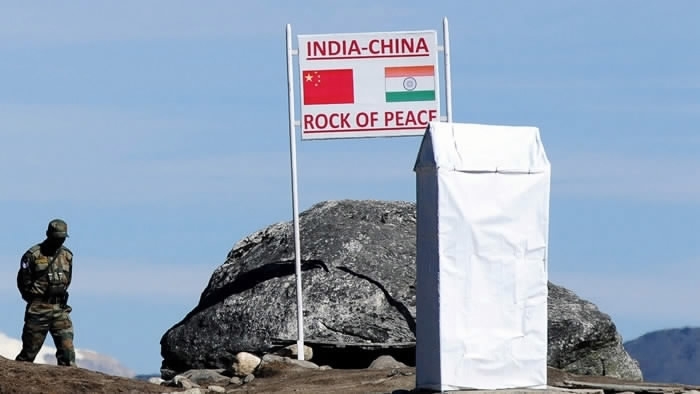After a 71-day standoff between the Chinese and Indian military at the Donglang section of the border, India finally decided to withdraw. We in China welcome India's advisable and correct choice.
But what do other countries think of the stand-off and what would have happened if they would have been forced to take sides?
After wrapping up the “Malabar” US-India-Japan joint military exercise in the Indian Ocean, the US announced to the world that it took a neutral position in the confrontation.
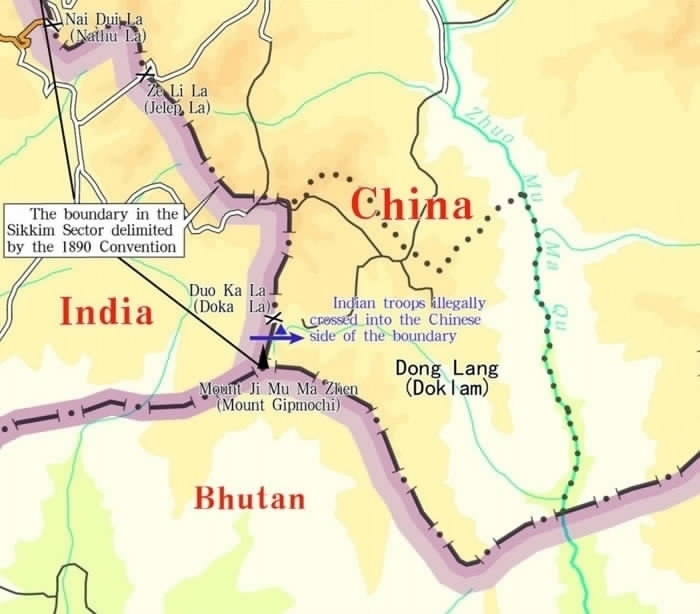
A sketch map of the site of the standoff between China and India. /MOFA Photo
A sketch map of the site of the standoff between China and India. /MOFA Photo
But what about Russia? India recently announced that the “Indra 2017” India-Russia joint military exercise will be held in October.
The timing might suggest that Russia would support India in any conflict with China although Russian high-ranking officials insisted that the military exercise was a regular event aimed at no third party.
Despite the timing of the military exercises, here’s why I believe Russia would never side with India and fight against China.
This report was originally broadcast in Asia Today on August 28, 2017
A Historical Review and Analysis of the Relationship Between India and Russia
Aid from the former Soviet Union to India began in 1951 and did not end until late 1980s. More than half of the Indian industry could be traced to the Soviet Union. During the Cold War, both the United States and the Soviet Union provided aid to India in a bid to win its support, but the US set a lot of additional preconditions, while the Soviet rules were more relaxed. From the late 1960s onward, as its economic dependence on Russia deepened, India would soon be absorbed into the Soviet orbit in international affairs.
Over the years, Russia and India had close military exchanges. Since the 1960s, Russia sold more than 50 billion US dollars worth of arms to India, resulting in 70% of Indian weapons and equipment being made in Russia; almost every year since 2003, the two countries would hold bilateral military technological and tactical exchanges, and stage joint military exercises. The “Indra 2017” exercise was actually arranged by India and Russia last April.
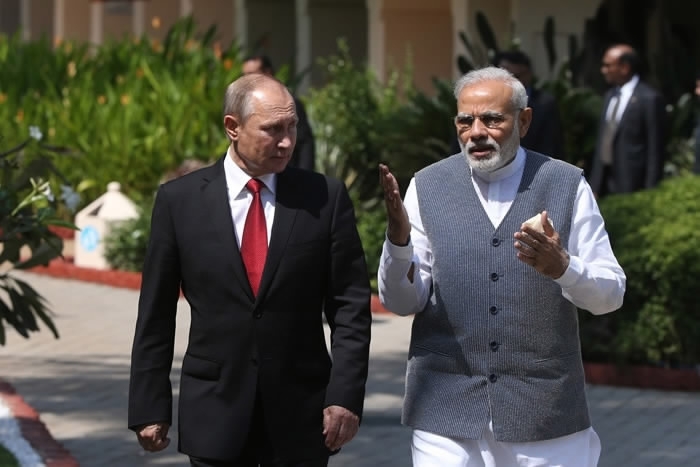
Russian President Vladimir Putin (R) and Indian Prime Minister Narendra Modi walk together at Taj Exotic Hotel in Benaulim, Goa, India during the BRICS summit on October, 15, 2016. /VCG Photo
Russian President Vladimir Putin (R) and Indian Prime Minister Narendra Modi walk together at Taj Exotic Hotel in Benaulim, Goa, India during the BRICS summit on October, 15, 2016. /VCG Photo
Since the breakup of the Soviet Union, Russia has lost its decisive influence over India, but its arms sales to India have become an important source of income.
Since India will also purchase F-35 stealth fighters from the US, Russia does not want to see a closer India-US relation and will not give up on India.
Russia-India military exchanges have been going on for decades so we do not need to give much interpretation to the joint exercise. However, under the current circumstances of escalating military confrontations between China and India, this large-scale military exercise can easily bring disaster upon India itself.
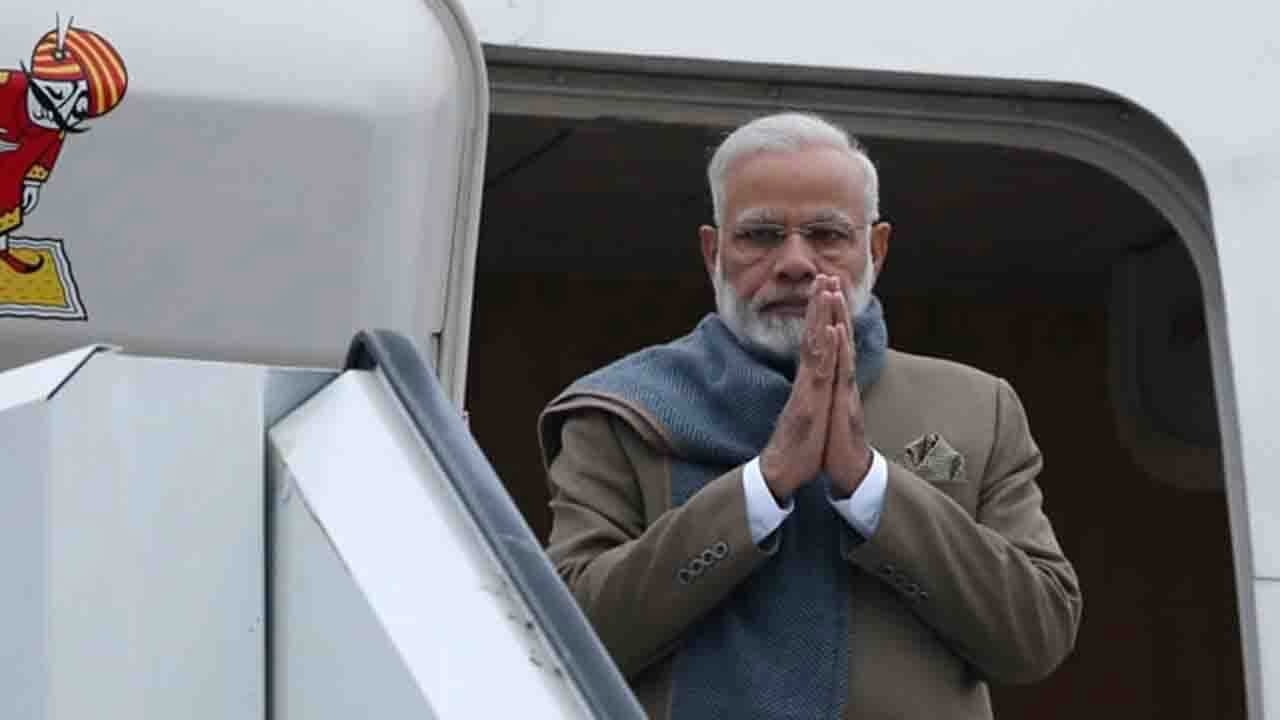
Indian Prime Minister Narendra Modi arrived in St. Petersburg for an annual summit with Russian President Vladimir Putin on May 31, 2017. The two leaders will work on a deal for Moscow to supply more reactors to a nuclear plant in southern India. /VCG Photo
Indian Prime Minister Narendra Modi arrived in St. Petersburg for an annual summit with Russian President Vladimir Putin on May 31, 2017. The two leaders will work on a deal for Moscow to supply more reactors to a nuclear plant in southern India. /VCG Photo
China and Russia’s future is more important than Russia and India’s past.
With the joint efforts of the top leaders and the governments of the two countries, China-Russia relations have witnessed rapid and stable development.
China and Russia have broad common interests in international affairs. Both countries have a special responsibility for maintaining peace and stability in the world and the region. In the establishment of a just and reasonable new international order, both countries have the same or similar positions in the struggle against hegemony, terrorism and safeguarding regional peace and stability.
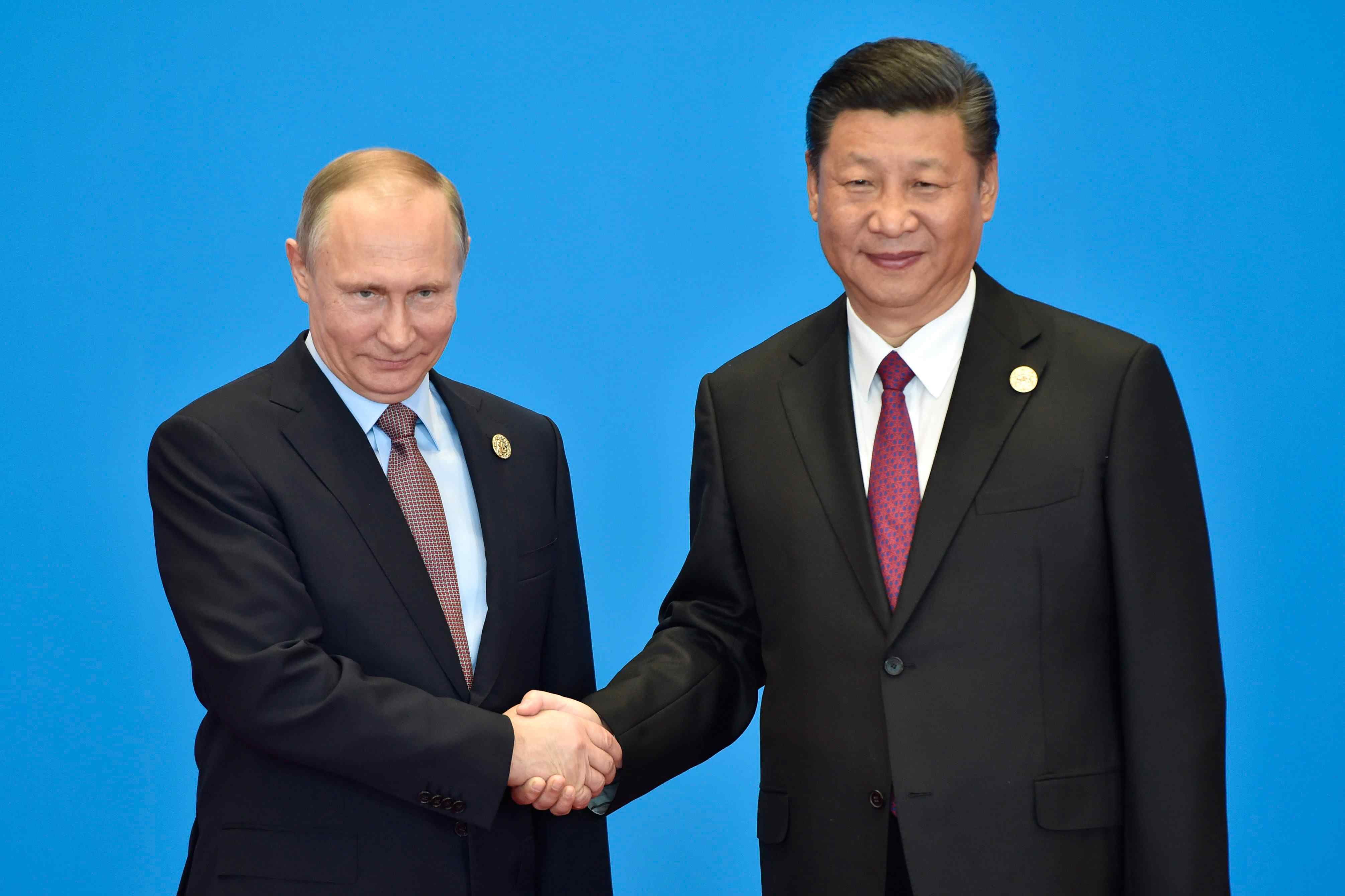
Russia's President Vladimir Putin (L) shakes hands with China's President Xi Jinping during the welcome ceremony for the Belt and Road Forum at the International Conference Center in Yanqi Lake, north of Beijing, on May 15, 2017.
Russia's President Vladimir Putin (L) shakes hands with China's President Xi Jinping during the welcome ceremony for the Belt and Road Forum at the International Conference Center in Yanqi Lake, north of Beijing, on May 15, 2017.
President Xi Jinping stated that the current comprehensive strategic partnership of cooperation between China and Russia is in the historically best period, and we have established a high level of political and strategic mutual trust, high-level exchanges and cooperation in various fields.
We have coordinated our development strategies, have a solid social and public opinion basis for developing our mutual relations, and maintain close strategic cooperation in the international and regional affairs. President Putin is the first leader to accept the invitation to participate in the Belt and Road Forum, reflecting the important support of the Russian side for the Chinese side and the high level of China-Russian relations.
Russia has become China's largest petroleum and power importer and the fifth largest coal importer; undergoing is the two countries’ cooperation in the high-speed rail, energy, finance, aerospace, electromechanical, agricultural products, humanities and other fields; trade volume between Russia and China is 69.5 billion US dollar in 2016. Bilateral trade amounted to 250 billion RMB in the first 6 months of this year, an increase of 34.7%.
This report was originally broadcast in Global Business on April 28, 2017
Historically, India seriously damaged Russian economic interests. After the disintegration of the Soviet Union in 1991, the Soviet ruble fell from 1: 1.1 to 3,000: 1 against US dollars, and India took advantage of the collapse of the exchange rate to repay the $11 billion US dollars it owed to the Soviet Union, which actually only amounted to $3 million US dollars, causing serious damage to the Russian interests. I believe this should be fresh on the mind of the Russians.
I firmly believe that Russia will continue to attach great importance to the development of strategic partnership with China and will never choose to confront China, because its relationship with China is far more important than that with India.
This report was originally broadcast in Global Watch on April 28, 2017
We always deem that, the highest realm of military struggle is subduing the enemy without fighting. China never wanted to have war and we wish to resolve territorial disputes through negotiation on the basis of respect of history.
However, China has never been afraid of war, especially on issues related to national territorial integrity and sovereignty, we will never compromise and make a concession to any other country, even in the price of maximum national sacrifice.
(The author is an expert in missiles and nuclear strategy. The article reflects the author's opinion, not necessarily the views of CGTN.)

